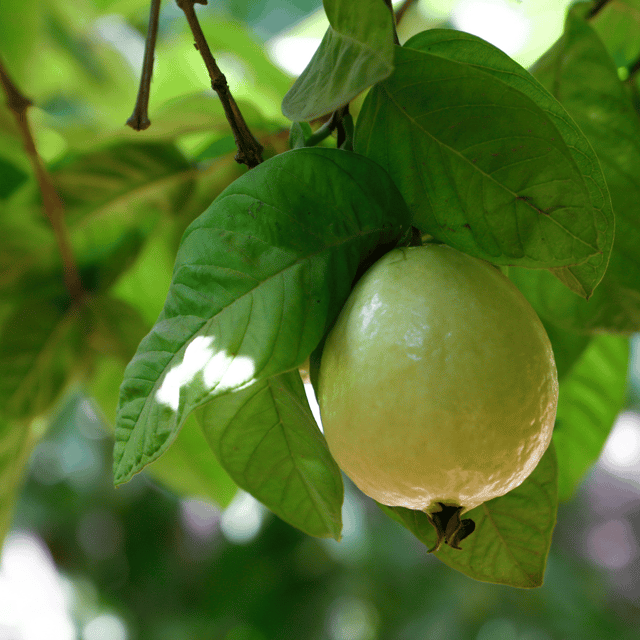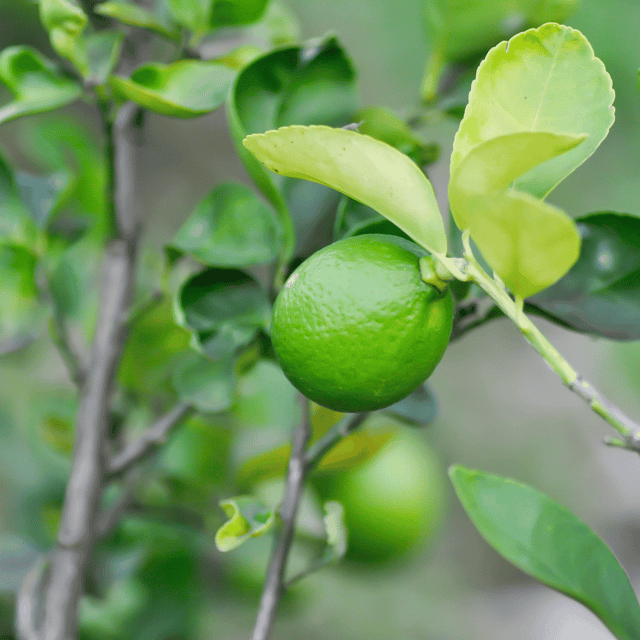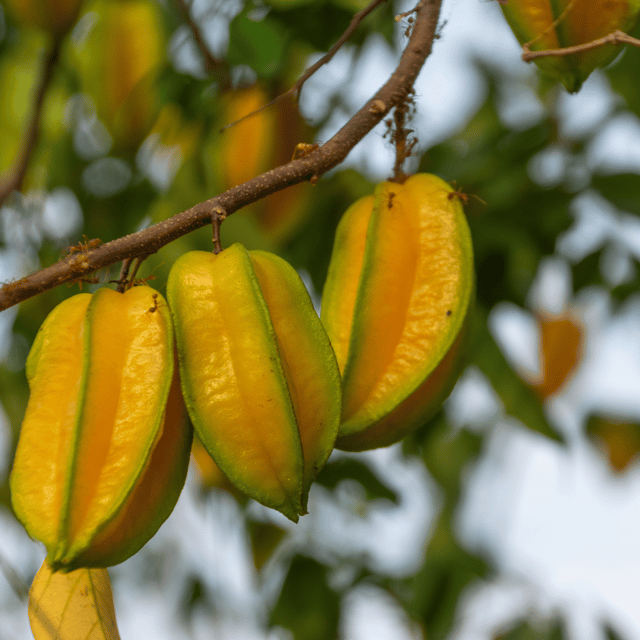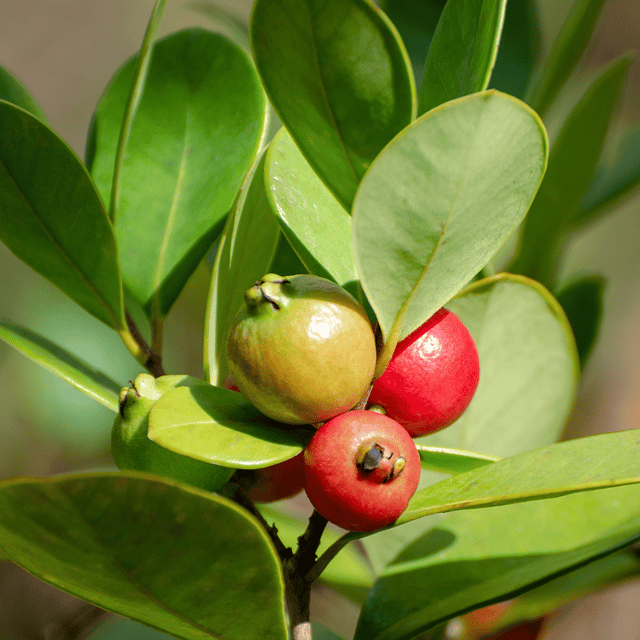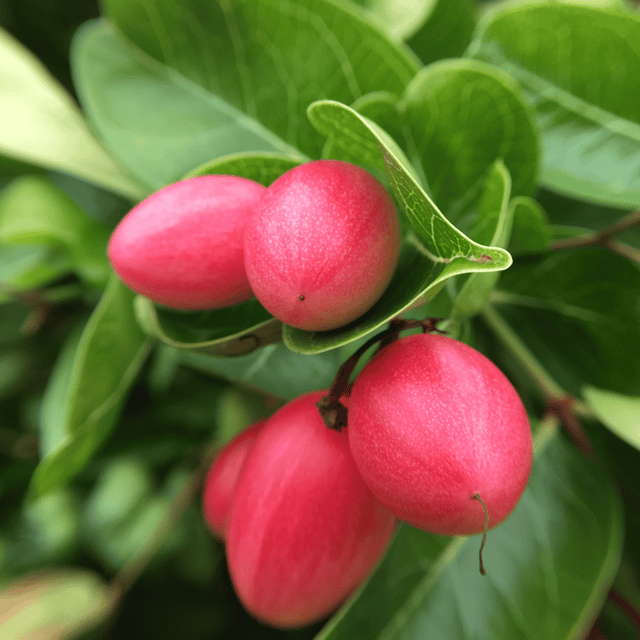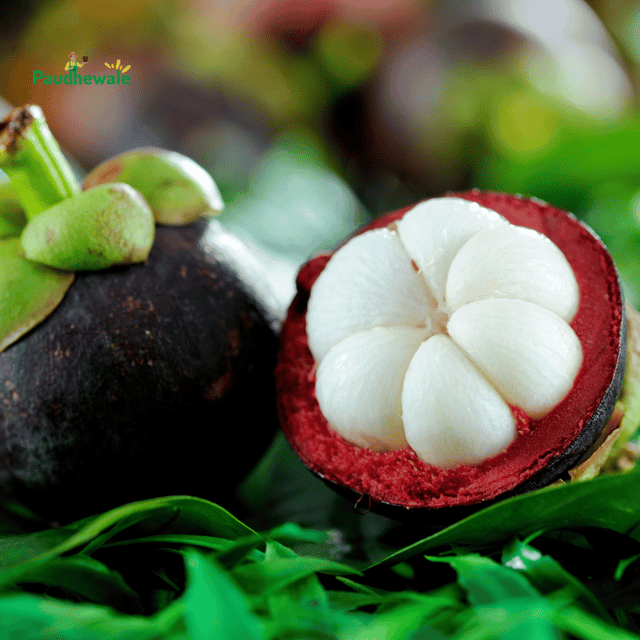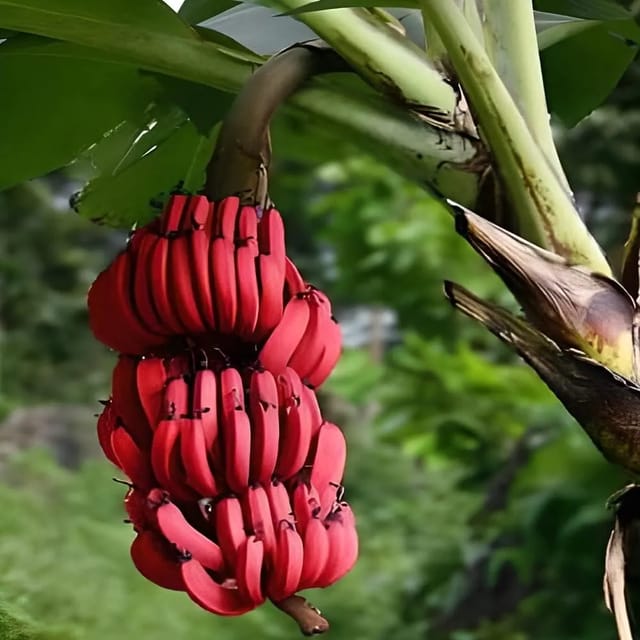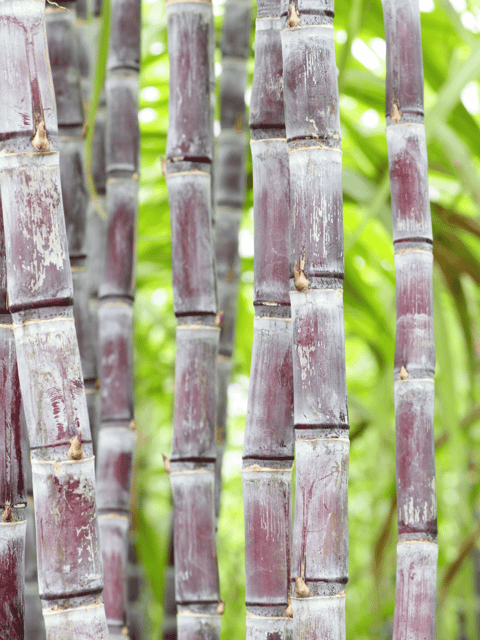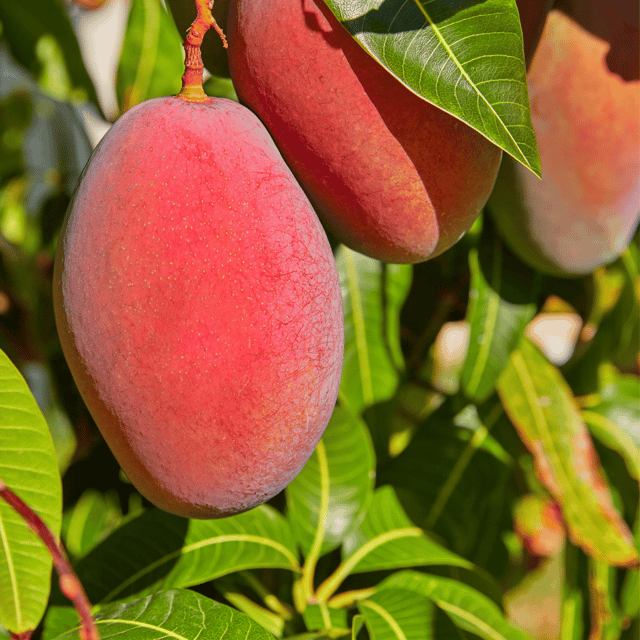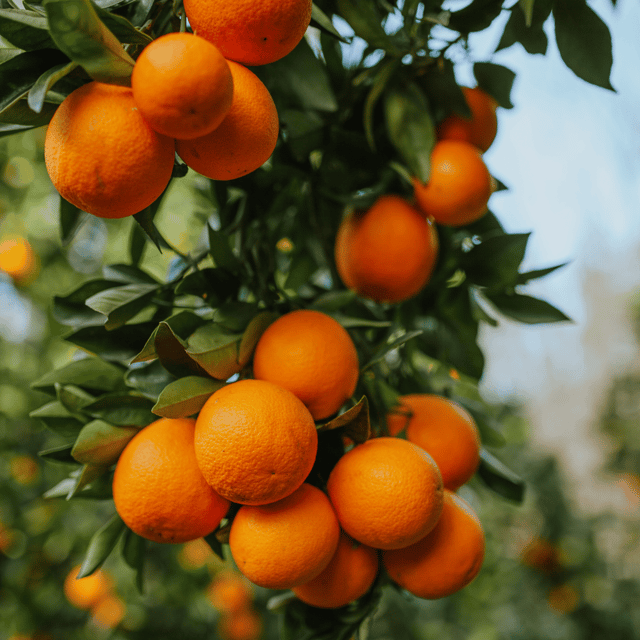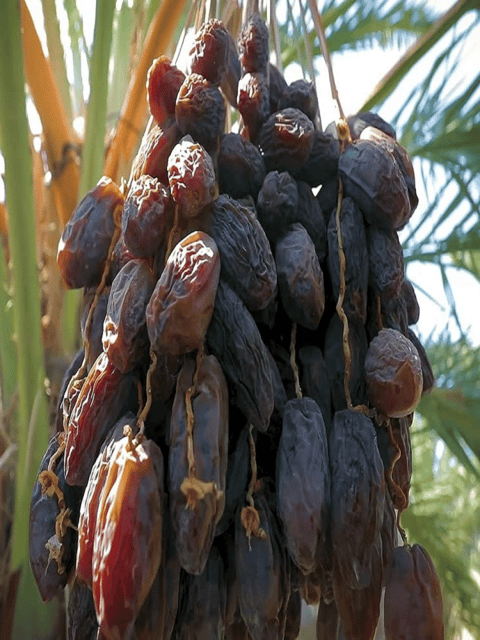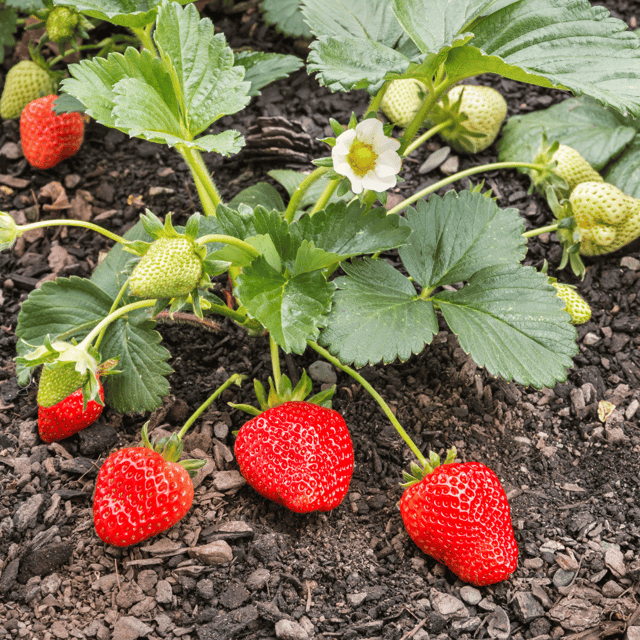- English
- हिन्दी - HI
Choose your location
Please provide your delivery pincode to see products available in your area
Fruit Plants
Explore Our Wide Range of Fruit Plants and Trees
Discover the joy of home-grown fruit with our diverse selection of fruit plants and trees. At Paudhewale, we offer a wide range of healthy, ready-to-plant fruit options,...
Explore Our Wide Range of Fruit Plants and Trees
Discover the joy of home-grown fruit with our diverse selection of fruit plants and trees. At Paudhewale, we offer a wide range of healthy, ready-to-plant fruit options, from tropical Mango and Lychee trees to classic Apple and Peach trees. Whether you're a seasoned gardener or a beginner, our fruit plants are perfect for adding a fruitful touch to your garden, providing both beauty and bounty.
Popular fruit plants for home gardens
Our collection includes a variety of fruit-bearing plants and trees, suited for various climates and preferences:
- Pomegranate Trees: Known for their resilience and sweet, antioxidant-rich fruits.
- Jackfruit Trees: Produce large, nutritious fruits, perfect for tropical climates.
- Guava Trees: Easy to grow and rich in Vitamin C, offering a continuous yield.
- Avocado Trees: Popular for their health benefits and versatility in cooking.
- Lychee Trees: Produce sweet, aromatic fruits that are a summer delight.
- Banana Trees: Fast-growing with a generous yield of fresh bananas.
- Apple Trees: Ideal for cooler climates, with a variety of species that offer delicious fruits.
- Mango Trees: A tropical favorite, known for their lush foliage and sweet fruits.
- Citrus Plants: Includes a range of trees like oranges, lemons, and limes, perfect for refreshing juices.
- Peach Trees: Offer delicious, juicy fruits and require moderate care.
- Berry Bushes: Includes varieties like strawberries, blueberries, and raspberries, great for smaller gardens or containers.
The Different Types of Fruits and Their Nutritional Benefits
Growing your own fruit plants can be incredibly rewarding, providing fresh and nutritious produce right from your backyard. Not only does this reduce your grocery bills, but it also ensures you enjoy organically grown fruits without harmful chemicals. Additionally, fruit trees and plants can enhance the aesthetic appeal of your garden, create natural shade, and support local wildlife. Here, we explore the different types of fruits and their nutritional benefits.
Citrus Fruits
Citrus fruits, such as oranges, lemons, limes, and grapefruits, are renowned for their high vitamin C content. This essential nutrient boosts the immune system, promotes healthy skin, and aids in the absorption of iron from plant-based foods. Additionally, citrus fruits contain flavonoids, which have antioxidant properties that can reduce inflammation and lower the risk of chronic diseases.
Berries
Berries, including strawberries, blueberries, raspberries, and blackberries, are packed with antioxidants, vitamins, and fiber. They are particularly high in vitamin C, vitamin K, and manganese. The antioxidants in berries help fight oxidative stress and inflammation, potentially lowering the risk of heart disease and certain cancers. Their high fiber content also supports digestive health and helps maintain a healthy weight.
Tropical Fruits
Tropical fruits like mangoes, pineapples, bananas, and papayas offer a rich array of vitamins and minerals. Mangoes are an excellent source of vitamins A and C, which are important for vision, immune function, and skin health. Pineapples provide bromelain, an enzyme that aids digestion and has anti-inflammatory properties. Bananas are well-known for their high potassium content, which supports heart health and muscle function, while papayas are rich in vitamin C and folate.
Stone Fruits
Stone fruits, such as peaches, plums, cherries, and apricots, are not only juicy and delicious but also nutrient-dense. They are high in vitamins A and C, which are important for immune function and skin health. Stone fruits also contain fiber, which aids in digestion and helps regulate blood sugar levels. Cherries, in particular, are rich in antioxidants and have been linked to reduced inflammation and improved sleep quality.
Apples and Pears
Apples and pears are versatile fruits that are high in dietary fiber, particularly pectin, which supports digestive health and helps control blood sugar levels. They also contain various vitamins and antioxidants that contribute to overall health. Apples, in particular, have been linked to a lower risk of heart disease and certain cancers.
Incorporating a variety of fruits into your diet ensures you receive a broad spectrum of nutrients essential for good health. Whether you enjoy citrus fruits, berries, tropical fruits, stone fruits, or apples and pears, each type offers unique benefits that can enhance your overall well-being. Eating a diverse range of fruits can help you maintain a balanced diet, support your immune system, and promote long-term health.
How to Care for Your Fruit Plants and Trees
Proper care is essential for healthy and productive fruit plants and trees. Start by ensuring they are planted in well-draining soil with adequate sunlight, as most fruit plants need at least six hours of direct sunlight daily. Regular watering is crucial, especially during dry spells, but avoid waterlogging to prevent root rot. Mulching around the base helps retain moisture and suppress weeds. Fertilize your fruit plants with a balanced, slow-release fertilizer during the growing season to provide essential nutrients. Pruning is necessary to remove dead or diseased branches, promote airflow, and encourage fruit production. Additionally, monitor for pests and diseases, using organic or integrated pest management strategies to keep your plants healthy. Following these care tips will ensure your fruit plants and trees thrive and produce bountiful harvests.
Growing Your Own Fruit Garden: Tips and Tricks for Success
Creating your own fruit garden can be a rewarding and nutritious endeavor. To ensure success, start by selecting fruit varieties that thrive in your climate and soil conditions. Choose a sunny location, as most fruit plants require at least six hours of direct sunlight daily. Prepare the soil by incorporating organic matter to enhance fertility and drainage. Regular watering is crucial, especially during dry periods, but be cautious of overwatering, which can lead to root rot. Implement a balanced fertilization schedule to provide essential nutrients. Prune your fruit plants to promote healthy growth and maximize yield. Lastly, monitor for pests and diseases, using organic or integrated pest management strategies to protect your garden. With these tips and tricks, you can enjoy a bountiful harvest from your own fruit garden.
The Future of Fruit Cultivation and the Importance of Sustainable Practices
The future of fruit cultivation hinges on adopting sustainable practices to meet growing global demand while preserving our environment. Sustainable fruit farming involves using eco-friendly techniques such as organic farming, crop rotation, and integrated pest management. These methods reduce the reliance on chemical fertilizers and pesticides, promoting soil health and biodiversity. Innovations in technology, like precision agriculture and hydroponics, are also transforming fruit cultivation by optimizing resource use and increasing yields. Emphasizing sustainability not only ensures a consistent supply of high-quality fruit but also mitigates the impacts of climate change and protects ecosystems. Adopting these practices is crucial for securing the future of fruit cultivation and fostering a healthier planet.
Low Maintenance Fruit Plants
Creating a home orchard can be easy with low maintenance fruit plants that require minimal care while offering abundant harvests. Here are some top choices for hassle-free fruit gardening:
Lemon Tree
Lemon trees are hardy and thrive in various climates. They require occasional watering and pruning and can even be grown in containers.
Fig Tree
Fig trees are drought-tolerant and adaptable, making them perfect for low maintenance gardening. They produce delicious fruits with minimal intervention.
Strawberry Plants
Strawberry plants are easy to grow and spread quickly. They require regular watering but are generally pest-resistant and prolific.
Mulberry Tree
Mulberry trees are fast-growing and low maintenance. They produce a large number of sweet berries and are excellent for attracting wildlife.
Blueberry Bushes
Blueberry bushes are hardy and require minimal pruning. They thrive in acidic soil and provide a bountiful harvest with proper mulching and watering.
Banana Tree
Banana trees are resilient and grow well in warm climates. They need regular watering but are otherwise low maintenance.
Avocado Tree
Avocado trees are durable and can thrive in various soil types. They need occasional watering and pruning to stay healthy.
Apple Tree
Apple trees are robust and can produce fruit with minimal care. They benefit from yearly pruning and occasional feeding.
Peach Tree
Peach trees are easy to grow and adapt well to different soils. They require regular watering and annual pruning.
Pineapple Plant
Pineapple plants are low maintenance and can be grown in containers. They need well-draining soil and occasional watering.
Dragon Fruit Plant
Dragon fruit plants are drought-tolerant and easy to care for. They thrive in warm climates and require minimal watering.
Physalis and Cucamelon
Both physalis and cucamelon are hardy and low maintenance, producing unique and tasty fruits with minimal effort.
Mango Tree
Mango trees are durable and thrive in warm, sunny climates. They require regular watering and occasional fertilization.
These low maintenance fruit plants are perfect for gardeners looking to enjoy fresh, homegrown produce without extensive labor.
Fast-Growing Fruit Plants
Discover the joy of fast-growing fruit plants that offer both beauty and productivity in your garden. These plants are prized for their ability to yield delicious fruits in a short time, perfect for impatient gardeners and those new to gardening. Varieties like strawberries, tomatoes, blueberries, and raspberries are known for their rapid growth and ease of cultivation. By choosing the right varieties and providing adequate care, you can enjoy fresh fruits sooner than you think. Whether in containers or garden beds, fast-growing fruit plants add color, flavor, and excitement to any garden landscape. Start your fruit-growing journey today and reap the rewards quickly with these fruitful selections.
Organic Fruit Plants
Organic fruit plants are cultivated without synthetic pesticides or fertilizers, making them a healthier choice for both consumers and the environment. These plants are grown using natural methods such as composting, crop rotation, and biological pest control. Organic fruit gardening promotes soil health and biodiversity while reducing the ecological footprint of farming practices. By choosing organic fruit plants, you ensure that your produce is free from harmful chemicals, preserving its nutritional value and taste. Additionally, organic farming practices prioritize sustainability, conserving water and energy resources and promoting long-term soil fertility. Whether you're growing strawberries, apples, or citrus fruits, opting for organic fruit plants supports a sustainable and eco-friendly approach to gardening, benefiting both your health and the planet.
Why Choose Paudhewale's Fruit Plants?
- Quality Assurance: Each plant is health-checked and sourced from top nurseries to ensure vibrant blooms.
- Pan-India Delivery: We deliver across India, bringing these beauties right to your doorstep.
- Customer Support: Our gardening experts are here to assist you with any queries about plant care or selection.
Embrace the satisfaction of picking fresh fruit directly from your garden with our premium selection of fruit plants and trees.

